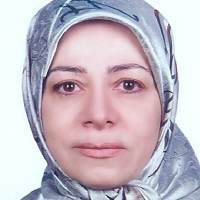Characterizing Genotypes and Phenotypes Associated with Dysfunction of Channel-Encoding Genes in a Cohort of Patients with Intellectual Disability
Ion channel dysfunction in the brain can lead to impairment of neuronal membranes and generate several neurological diseases, especially neurodevelopmental disorders.
In this study, we set out to delineate the genotype and phenotype spectrums of 14 Iranian patients from 7 families with intellectual disability (ID) and/or developmental delay (DD) in whom genetic mutations were identified by next-generation sequencing (NGS) in 7 channel-encoding genes: KCNJ10, KCNQ3, KCNK6, CACNA1C, CACNA1G, SCN8A, and GRIN2B. Moreover, the data of 340 previously fully reported ID and/or DD cases with a mutation in any of these seven genes were combined with our patients to clarify the genotype and phenotype spectrum in this group.
In total, the most common phenotypes in 354 cases with ID/DD in whom mutation in any of these 7 channel-encoding genes was identified were as follows: ID (77.4%), seizure (69.8%), DD (59.8%), behavioral abnormality (29.9%), hypotonia (21.7%), speech disorder (21.5%), gait disturbance (20.9%), and ataxia (20.3%). Electroencephalography abnormality (33.9%) was the major brain imaging abnormality.
The results of this study broaden the molecular spectrum of channel pathogenic variants associated with different clinical presentations in individuals with ID and/or DD.
-
Aicardi-Goutières Syndrome Type 1: A Novel Missense Variant and Review of the Mutational Spectrum
Behnoosh Tasharrofi, , Mostafa Asadollahi, Sepideh Hasani, Morteza Heidari, Mohammad Keramatipour
Iranian Journal of Child Neurology (IJCN), Summer 2024 -
A Case Report of Parental Germline Mosaicism in the PCDH19 Gene of Two Iranian Siblings
Sahar Alijanpour, Soudeh Ghafouri-Fard, Seyed Hassan Tonekaboni, , Farzad Ahmadabadi, Elham Rahimian, Samareh Panjeshahi, Mohammad Miryounesi*
Basic and Clinical Neuroscience, Jul-Aug 2024


